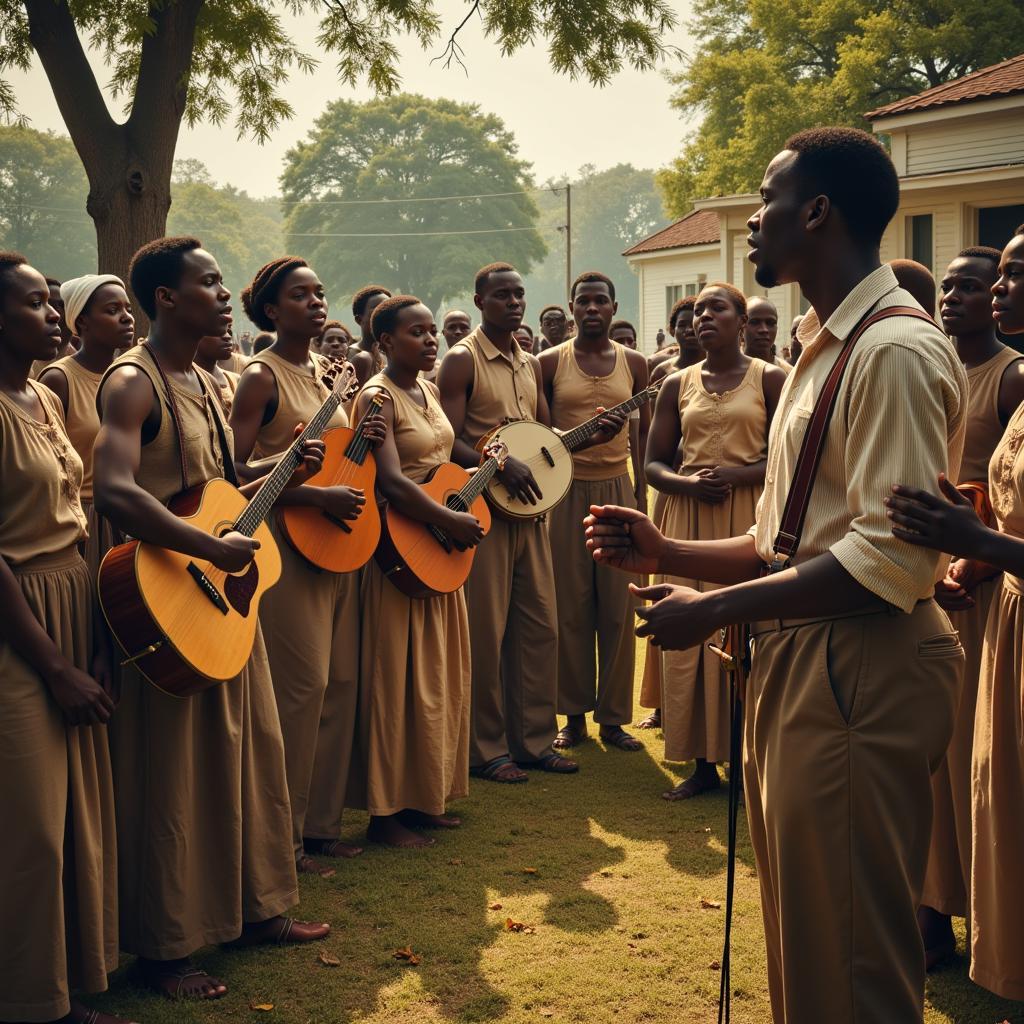Unveiling the Magic of African Fairy Tales: Rupenzela and Beyond
African fairy tales, like Rupenzela, offer a captivating glimpse into the rich tapestry of African cultures, traditions, and beliefs. These stories, passed down through generations, are more than just bedtime narratives; they are vessels of wisdom, moral lessons, and fantastical adventures that have shaped the identities of countless communities across the continent. They explore themes of bravery, cunning, love, loss, and the eternal struggle between good and evil, reflecting the universal human experience while remaining deeply rooted in African soil.
Discovering the Enchanting World of Rupenzela
Rupenzela, a popular tale from Zambia, narrates the story of a young girl blessed with extraordinary beauty and a magical singing voice. Her captivating melodies enchant all who hear them, attracting the attention of both benevolent spirits and malevolent forces. Rupenzela’s journey is a testament to the power of resilience, showcasing the challenges faced by young women in traditional societies and the importance of preserving one’s identity in the face of adversity. The tale also highlights the vital role of music and storytelling in African culture.
The Significance of Rupenzela in Zambian Folklore
Rupenzela holds a special place in Zambian folklore, representing the idealized image of feminine strength and virtue. The story emphasizes the importance of respecting elders, honoring traditions, and embracing one’s cultural heritage. It also serves as a cautionary tale against vanity and the dangers of unchecked ambition.
Exploring the Diversity of African Fairy Tales
African fairy tales are as diverse as the continent itself. From the arid landscapes of the Sahara to the lush rainforests of the Congo Basin, each region boasts a unique collection of stories reflecting the specific environment, customs, and beliefs of its people. These tales often feature animal protagonists, showcasing the close relationship between humans and nature in many African societies. Anansi the Spider, a popular character in West African folklore, embodies trickery and wisdom, while tales from East Africa often feature cunning hares and powerful lions.
Themes and Motifs in African Storytelling
Common themes in African fairy tales include the triumph of good over evil, the importance of community, and the respect for ancestors. These stories often incorporate magical elements, shape-shifting creatures, and powerful spirits that intervene in the lives of humans. The use of proverbs and riddles is also prevalent, adding layers of meaning and encouraging critical thinking.
How African Fairy Tales Preserve Cultural Heritage
African fairy tales play a crucial role in preserving cultural heritage. They transmit traditional knowledge, values, and beliefs from one generation to the next, ensuring the continuity of cultural identity. These stories also provide valuable insights into the history, social structures, and spiritual beliefs of different African communities.
The Role of Oral Tradition
The oral tradition is central to the preservation of African fairy tales. Storytellers, often respected elders within the community, hold a position of great importance. They are not merely recounting tales, but also interpreting them, adapting them to contemporary contexts, and imbuing them with their own unique style and perspective.
Dr. Abena Osei, a renowned folklorist from Ghana, emphasizes this point: “African fairy tales are living narratives, constantly evolving as they are passed down through generations. They are not static texts but dynamic expressions of cultural identity.”
Rupenzela and the Modern World
Even in the digital age, stories like Rupenzela continue to resonate with audiences worldwide. They offer a window into a world rich in tradition, magic, and profound wisdom, reminding us of the enduring power of storytelling.
In conclusion, African fairy tales, like the captivating story of Rupenzela, offer a valuable glimpse into the heart and soul of Africa. They are a testament to the power of storytelling to preserve cultural heritage, transmit wisdom, and entertain audiences across generations. Exploring these tales allows us to connect with the rich diversity of African cultures and appreciate the universal themes that bind us all together.
FAQ
-
What is the moral of the Rupenzela story? The story highlights the importance of humility, respect for elders, and the dangers of unchecked vanity.
-
Where does the Rupenzela story originate? The story comes from Zambia.
-
Are there other Zambian fairy tales? Yes, Zambia has a rich oral tradition with many other captivating tales.
-
What are some common themes in African fairy tales? Common themes include good versus evil, the importance of community, and respect for ancestors.
-
How are African fairy tales preserved? Primarily through oral tradition, passed down from generation to generation by storytellers.
-
Why are African fairy tales important? They preserve cultural heritage, transmit wisdom, and provide entertainment.
-
Where can I find more African fairy tales? Libraries, online resources, and cultural centers often have collections of African stories.
When you need assistance, please contact us at Phone Number: +255768904061, Email: kaka.mag@gmail.com or visit us at Mbarali DC Mawindi, Kangaga, Tanzania. We have a 24/7 customer service team.



